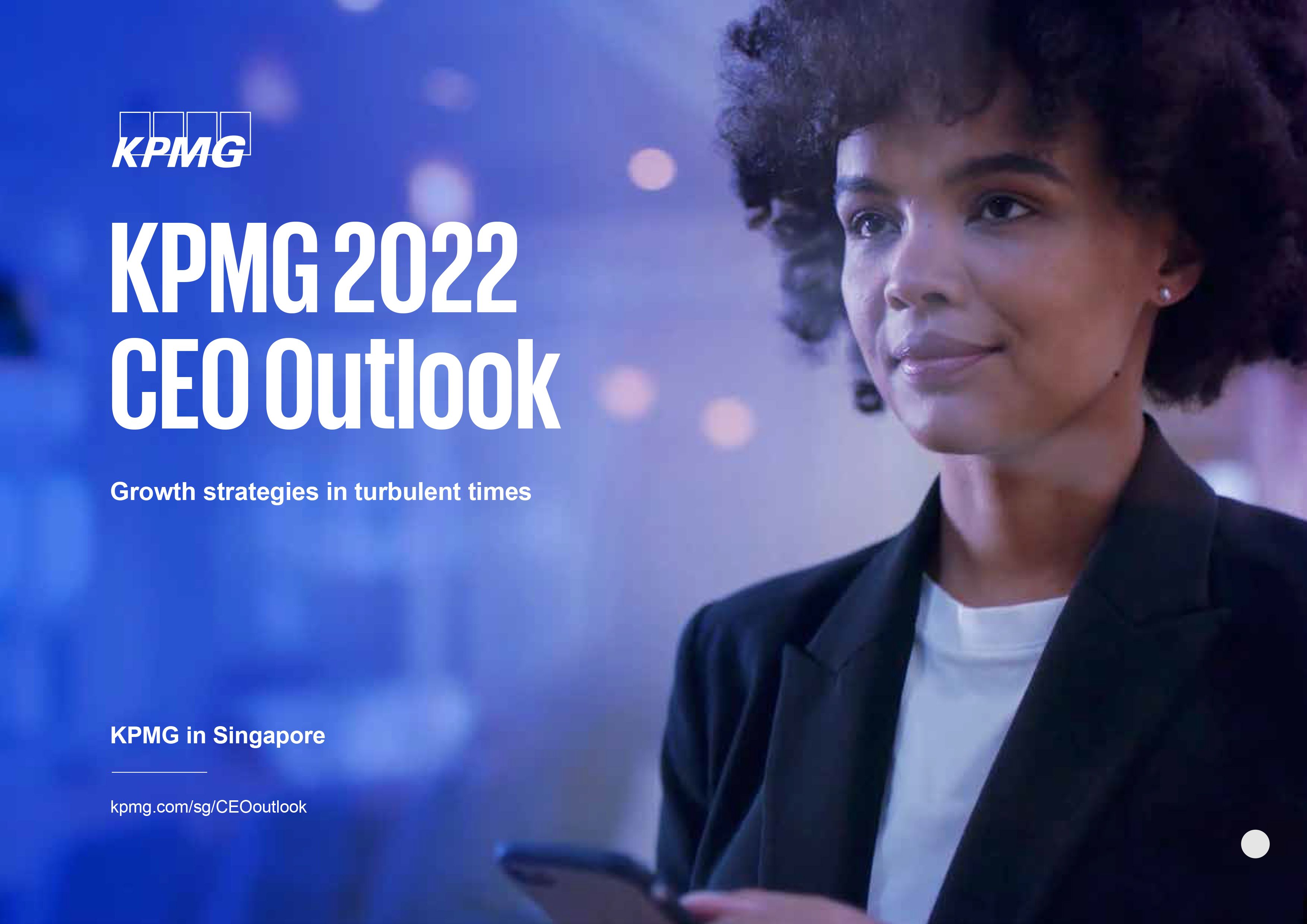Accelerating ESG's impact
Global CEOs see the importance of environmental, social and governance (ESG) initiatives on their businesses, especially when questioned about their impact on financial performance, growth and ability to meet stakeholder expectations.
This year’s KPMG CEO Outlook survey also reflects a marked jump in demand from stakeholders for increased transparency.
- In Singapore, 33% of CEOs have seen the biggest stakeholder demand from regulators; pressure from employees and new hires are on the rise
- 56% agree that ESG programmes improve financial performance, up from 40% a year ago
- 88% expect to reply more on external assurance of their ESG data, far more than 52% globally, to meet stakeholder expectations
What a recession would mean for ESG
As CEOs strive to maintain optimism and insulate their businesses from a potential upcoming recession, indicators point to ESG progress taking a hit. Our survey shows that more than half of CEOs in Singapore (52%) are pausing or reconsidering their existing or planned ESG efforts over the next six months, and that 28% have already done so.
ESG has become an intrinsic business imperative. Delaying key ESG efforts could make businesses more reactive in the future and impact their ability to lead the way with greater transparency, resilience and sustainability.

The ESG shadow cast by the supply chain
It’s critical for CEOs to understand how sustainable their entire business really is. CEOs increasingly see reporting and transparency as important to their ESG goals, including insight into their broader supply chain.
Among many challenges, decarbonising supply chains is a significant hurdle for companies looking to achieve net zero. Global supply chain leaders are starting to double down on investing in technology, such as real-time end-to-end analytics, to improve visibility across the entire value chain.
Global CEOs are also making the link to digital transformation: 74% say their organisations’ digital and ESG strategic investments are inextricably linked. As business leaders become increasingly accountable for their supply chains and reporting standards, their success will become more dependent on their digital systems.
Where does the business source their raw materials? Are they aware of suppliers’ human rights records? Multinational organisations need to focus more broadly on ESG — and look into all the shadows cast by the organisation.
Dialling up on diversity
Global businesses are placing a greater focus on the social aspect of ESG.
While there’s broad alignment on inclusion, diversity and equity (IDE), there is growing concern around the pace of progress. 68% of global CEOs believe that progress on IDE has moved too slowly in the business world (an increase from 52% in February 2022), and 73% believe scrutiny of IDE performance will continue to increase over the next three years.
In Singapore, 40% of CEOs say that taking a more proactive approach to societal issues will be the main driver for accelerating their company’s ESG strategy over the next three years.
Awareness is key, and CEOs can play a powerful role in helping lead and drive the agenda in the years ahead. Moving forward, it’s important to normalise IDE within companies to avoid fatigue. Any plans need to be intentional and focused on what’s possible within their market and business.
CEOs have a responsibility to drive greater social mobility in their organisations, which includes the way people are integrated and how the organisation is structured. It requires businesses to invest in their people in a new way.
Exploring opportunities for growth
- Recognise ESG’s impact on financial performance: CEOs increasingly agree that ESG programmes improve financial performance, including by securing talent, strengthening employee value proposition, attracting loyal customers and raising capital.
- Invest in real-time technologies: CEOs should monitor their supply chain more deeply (i.e. at the third and fourth levels). Global supply chain leaders are starting to double down on investing in technology, including real-time end-to-end analytics, to identify where issues exist and improve visibility across the entire value chain.
- Take the lead on IDE: CEOs can play a powerful role in helping lead and drive the IDE agenda in the years ahead. It's important to normalise and create an inclusive and diverse culture across an organisation to attract and retain new employees.
- Build strong connections among functions: Resilient organisations have well-connected internal teams. Collaboration across business functions has the potential to speed up decision-making, mitigate risk and increase innovation.
Explore KPMG 2022 CEO Outlook topics
For more insights on report data and methodologies, visit our global page.
Connect with us
- Find office locations kpmg.findOfficeLocations
- kpmg.emailUs
- Social media @ KPMG kpmg.socialMedia





